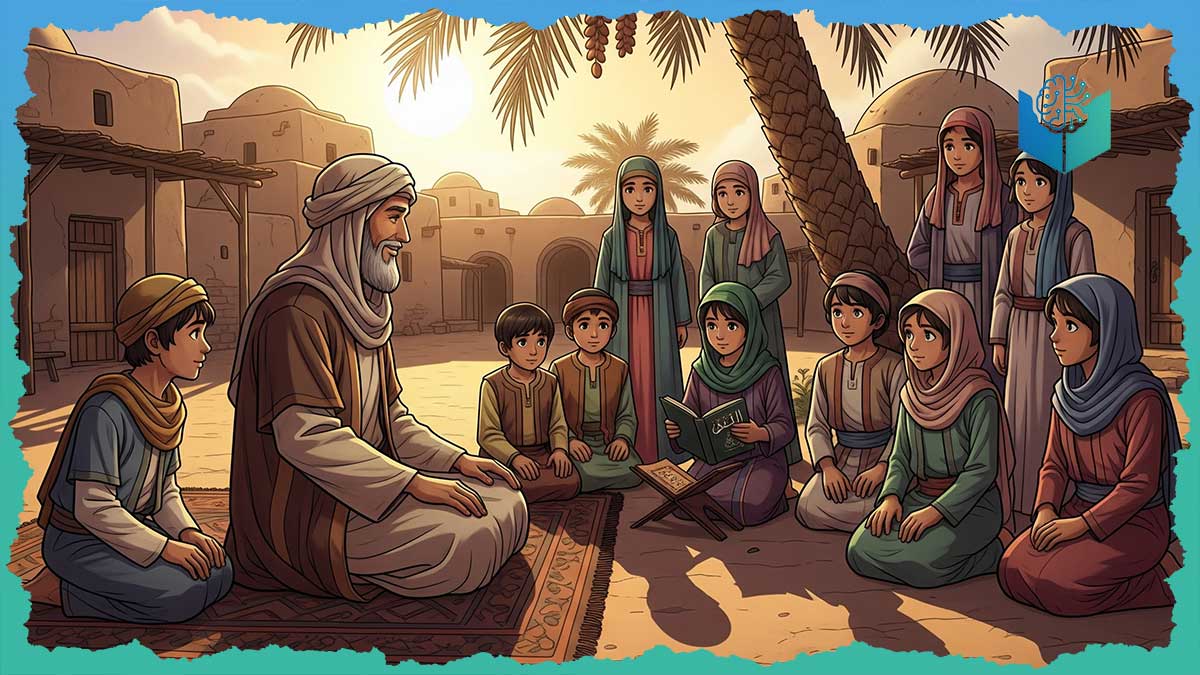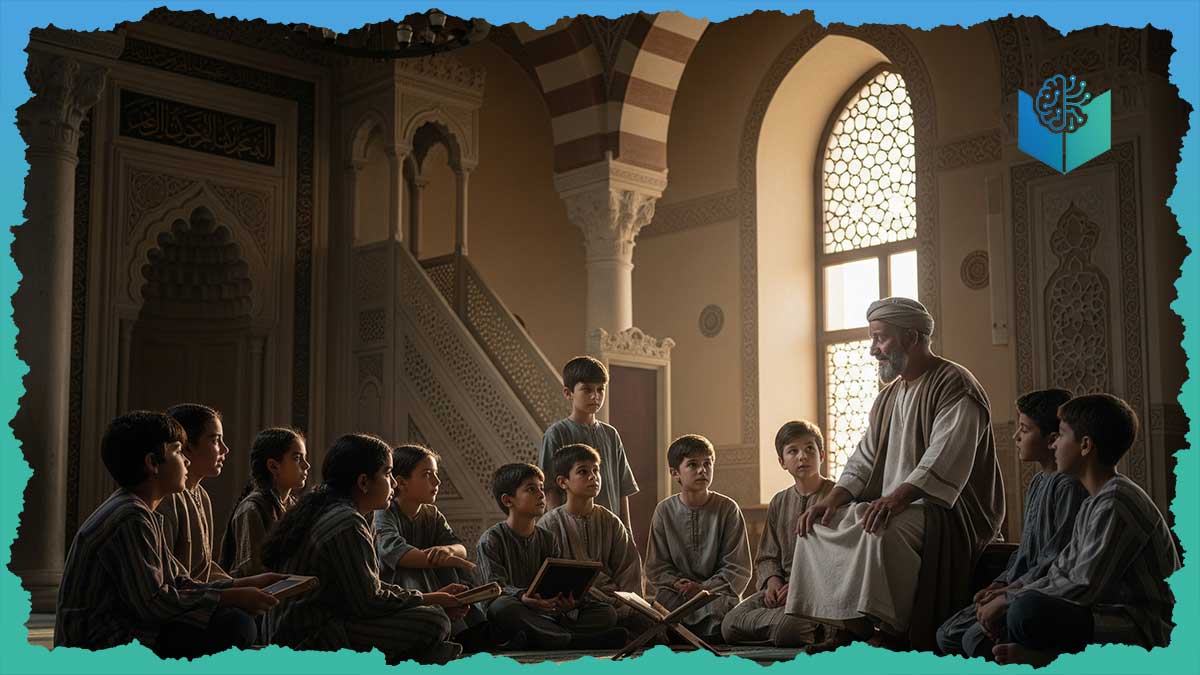Quranic Stories for Children

Quranic stories captivate young hearts with their vivid narratives and timeless wisdom, making them ideal for teaching children about faith and morals. These Quran story tales, drawn from the Quran, simplify profound lessons into engaging formats perfect for Quranic stories for children. Used as Islamic bedtime stories, they foster spiritual growth and create meaningful family moments. This article explores why these short Quranic tales are powerful tools for kids, highlights key stories, and shares tips for parents to bring these narratives to life while sparking curiosity about Islam.
The Power of Quranic Stories for Kids
The Quran’s storytelling style blends adventure, imagery, and moral lessons, making it ideal for young audiences. Quranic narratives engage both emotions and intellect, helping children connect with Islamic values. Quran kids stories simplify complex themes like faith, honesty, and compassion into relatable tales that resonate with children. Sharing these as Islamic bedtime stories not only nurtures spirituality but also strengthens family bonds by creating a calming bedtime routine.
The Story of Prophet Yusuf in the Quran
Why Storytelling Matters in Islam
Storytelling is a cornerstone of Islamic tradition, with the Quran using narratives to convey divine guidance. These short Quranic tales help children think about moral choices and their consequences, encouraging reflection and critical thinking. For parents, sharing a Quran story at bedtime builds a love for learning about Islam while promoting empathy and ethical behavior. Research shows that children exposed to religious stories develop stronger moral decision-making skills.

Benefits for Children
- Moral Growth: Stories teach values like patience and kindness, shaping character.
- Spiritual Connection: Regular exposure to Quranic stories for children deepens faith.
- Imagination: Vivid tales spark creativity and curiosity.
- Family Bonding: Bedtime storytelling creates lasting memories and trust.
Top Quranic Stories for Children
The Quran offers a range of stories perfect for kids, each with engaging plots and meaningful lessons. Below are some of the best short Quranic tales suited for young audiences, along with tips for sharing them.
Prophet Noah (Nuh): The Great Ark
In Surah Hud (11:25-49), Prophet Noah builds an ark to save believers and animals from a massive flood, despite being mocked by his people. His unwavering faith and perseverance make this a thrilling tale for kids.
- Lesson: This Quran story teaches children to stay true to their beliefs, even when others disagree, emphasizing trust in God.
- Storytelling Tip: Highlight the animals boarding the ark to capture kids’ imaginations. Use toy animals or draw a colorful ark to make it interactive.
Prophet Jonah (Yunus): The Whale Adventure
Surah As-Saffat (37:139-148) tells of Prophet Jonah, who is swallowed by a whale after fleeing his mission. His repentance and God’s mercy highlight the power of seeking forgiveness.
- Lesson: This Quran kids story shows kids that admitting mistakes and asking for forgiveness leads to compassion and hope.
- Storytelling Tip: Describe the whale’s dark belly to spark curiosity. Ask children how Jonah felt and what they’d do in his situation.

Prophet Solomon (Sulaiman): Talking with Animals
In Surah An-Naml (27:16-44), Prophet Solomon communicates with animals, including an ant that warns its colony. His wisdom and humility shine through in his leadership.
- Lesson: This short Quranic tale teaches respect for all creatures and the value of wise decision-making.
- Storytelling Tip: Use funny voices for the ant and other animals to engage kids. Picture books with animals make the story even more appealing.
The People of the Cave: A Miraculous Sleep
Surah Al-Kahf (18:9-26) recounts how young believers take refuge in a cave to protect their faith. God puts them to sleep for centuries, awakening them to show His protection.
- Lesson: This Quran story teaches trust in God’s care and the importance of standing firm in faith.
- Storytelling Tip: Describe the cave as a magical, safe place. Use a flashlight to mimic its darkness for an immersive experience.
How to Share Quranic Stories Effectively
To make Quranic stories for children engaging and memorable, parents and educators can use the following strategies.
Simplify for Young Audiences
- Use Simple Language: Break down complex narratives into short Quranic tales. For example, highlight the story of Noah’s ark and animals instead of discussing the religious meaning of the flood.
- Incorporate Visuals: Illustrated books or apps bring stories to life.
- Interactive Storytelling: Encourage kids to act out roles, draw scenes, or ask questions to deepen their understanding about Islam.
Create a Bedtime Routine
Using Islamic bedtime stories as a nightly ritual helps children wind down while learning. Parents can read from books like 365 Quranic Stories or narrate a Quran kids story in their own words. After the story, ask simple questions like, “What did Jonah learn?” to spark reflection. This routine fosters both spiritual growth and family closeness.
Leverage Technology
Digital tools can enhance storytelling. Apps like Quran for Kids offer animated Quranic stories for children, while kid-friendly retellings are available on various platforms. Balance screen time with traditional storytelling to maintain engagement without over-reliance on devices.
Why Bedtime Quran Stories Work
Islamic bedtime stories are ideal because they combine education with relaxation. The calm, rhythmic narration of a Quran story helps children feel secure, making bedtime a time for spiritual connection. These stories also offer practical benefits:
- Ethical Lessons: Tales like Solomon’s teach respect and wisdom, applicable in school and social settings.
- Emotional Resilience: Stories of prophets facing challenges, like Jonah, show kids how to handle difficulties with faith.
- Cultural Identity: Regular exposure to Quran kids stories strengthens a child’s connection to their Islamic heritage.

Practical Tips for Parents
- Be Consistent: Make storytelling a nightly or weekly habit to build anticipation.
- Relate to Daily Life: Connect lessons to real-world scenarios, like comparing Noah’s patience to waiting for a turn in a game.
- Use Resources: Books like Stories of the Prophets (simplified for kids) offer accessible insights.
- Encourage Questions: Let kids ask about the story to foster curiosity and critical thinking about Islam.
Engaging Children Beyond Bedtime
To extend the impact of Quranic stories for children, consider:
- Story-Based Activities: Create crafts, like making a paper ark for Noah’s story, or act out scenes with costumes.
- Discussion Circles: Share a short Quranic tale during family gatherings and discuss its lessons.
- Community Involvement: Join mosque storytelling sessions or online groups to explore more narratives.
Conclusion
Quranic stories for children aren’t just simple bedtime stories—they open the door to faith, wisdom, and strong moral values. Stories like those of Noah, Jonah, Solomon, and the People of the Cave make perfect Islamic bedtime stories, offering lessons in perseverance, forgiveness, and trust in God. By sharing these short Quranic tales, parents can nurture their children’s spiritual and emotional development while creating cherished memories. The Quran invites us to its stories, saying they are the best of narratives (Surah Yusuf, 12:3), inspiring young hearts to grow with faith and compassion.
Q&A
How Can Bedtime Quran Stories Benefit Children?
Bedtime Quran stories captivate kids with tales of prophets like Noah and Jonah, teaching values like patience and forgiveness. These Islamic bedtime stories foster spiritual growth and family bonding, creating a meaningful nightly routine.
What Are the Best Stories of Prophets for Kids?
The best stories of prophets for kids include Prophet Noah’s ark (Surah Hud, 11:25-49), Jonah and the whale (Surah As-Saffat, 37:139-148), and Solomon’s animal talks (Surah An-Naml, 27:16-44), teaching perseverance, repentance, and wisdom. These short Quranic tales, vivid and engaging, are perfect Islamic bedtime stories to inspire faith and morals about Islam.





